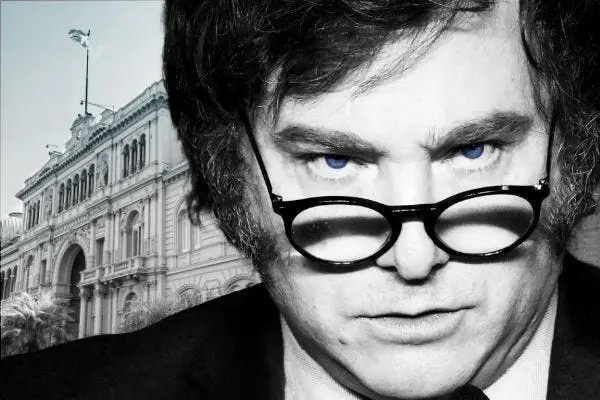Liberalism and the question of God
Reflections in the face of the spiritual upheaval in Europe
Karin Silvina Hiebaum – International Press
If orientation in the pluralistic spiritual climate of the former Christian Europe is to be asked, then it is necessary to deal with a basic spiritual current that has imposed its signature on modernity in a special way and that still unfolds a strong effectiveness in different forms and under different names today: with liberalism.
The collective term «liberalism» summarizes different positions that originate from a common root, namely the thinking of the Enlightenment and the associated socio-political processes, but which have become increasingly independent in the course of development into an economic, social, political and spiritual-cultural liberalism. 1] Connections, of course, continue to exist. In the following, reference is made to intellectual-cultural or ideological liberalism. In particular, the question of how such liberalism deals with the question of God and positions itself against the truth claim of the Christian faith and the social position of the church is of particular interest. 2]
1. Intellectual historical background and content expression
The ideological liberalism is understood here as the spiritual current that has found its historical expression especially since the French Revolution of 1789 with its basic demands of «Liberté, Égalité, Fraternité». 3] In the historical context, the postulate of «Liberté» was related to the freedom of the citizen, which he could enjoy in a new equality towards everyone, especially towards the nobility and the clergy.[ 4]
Spiritually, «Liberté» meant the unlimited freedom of thought, which should not be bound by the conventions and requirements of morality or religion. Man was radically understood as an individual, whose now possible self-realization was opposed by nothing and nothing was allowed to stand in the way. The revolutionary pathos of this idea pushed for enforcement at all costs. Whoever opposed this was seen as an enemy of freedom, who was considered a disruptive factor for the process of change, which had to be excluded or neutralized by force if necessary.
In the sense of the dualism of René Descartes, any kind of reconnection of the human spirit to the visible nature is abandoned. In the future, it is no longer a matter of grasping the objective meaning of certain things. Instead, subjective constructions of human consciousness become the actual form of reality and its perception and change. The attempt to enforce human rule as radical autonomy everywhere affects both the inanimate nature and the world of animals and plants, but also the «social nature» of human coexistence.
The scientific-technical worldview creates its theoretical foundation in zitism and positivism. What counts is only what you can weigh, count and measure and thus also master and change in a scientific-technical way. One was limited to the sensually detectable and measurable, whereby values were relativized to merely statistical and sociological quantities. Reason as a comprehensive ability of the knowledge of truth, including access to the metaphysical and religious dimension of being human, was degraded to mere purpose rationality.
If God is still recognized at all, then as the god of deism, who fills a blank space as the always imagined origin of the existing until scientific progress has also closed this supposedly last gap of the world declaration.
There is no place for the God of Jewish-Christian revelation, who actively intervenes in history. 5] The Incaration of God becomes an outdated myth, the thought of salvation is criticized as the alienation of humanity and as a questioning of the unlimited positive qualities of the autonomous individual. If God really existed in the biblical sense, then human freedom would be threatened, according to the basic tenor of liberal fears. There should be no more limits and barriers to human arbitrariness. In the context of the process of evolution, scientific progress will lead humanity to the stage where God had previously stood as a projection of his own unfulfillable wishes and longings. The path to atheism seems open. Thus, the sovereignty of definition for the meaning of life and in particular for the criterion of moral good and evil falls solely to man.
2. On the current situation in secular Europe
The outlined intellectual-historical development and guiding principle of ideological liberalism is also effective in the Europe of the present. Although a certain disillusionment has occurred, insofar as it became clear to many in the wake of two world wars that the project of modernity was not automatically programmed for success due to the «dialectics of the Enlightenment». In very few cases 6] In many cases, the euphoria of progress was replaced by a kind of resigned nihilism, which is also expressed in the flight into materialism and consumerism.
On the one hand, there are remnants of Marxist thought that cancel the moral freedom of man in the collectivistly understood social fabric; on the other hand, freedom in the postmodern cultural climate is understood as an unlimited quantity, which no longer knows any barriers, but at the same time also loses its meaning, since both the relationship of responsibility to man and to God has 7]
In general, the legacy of ideological liberalism contributes to the fact that the question of truth may no longer be asked in questions of faith and the moral way of life. 8] Under the pretext of alleged tolerance, the one who dares to call a view true or even to show moral and religious obligations is fought.[ 9] In most cases, the constitutionally guaranteed freedom of faith and religion is interpreted unilaterally under the sign of indifferentism and relativism.[ 10]
The de facto religious and in agnostic and atheistic thinking also religionless pluralism reflects in this way the attitude to life of the present, which as a postmodernism wants to free itself from certain foundations of modernity, but presupposes this again in its negation and in particular carries through the intellectual-historical signum of an ideological liberalism and leads in a new way to
3. The answer of the Christian faith and the Catholic Church
How can and should the Church react to the cultural and social tendencies of the present, in particular to the permanent challenge posed by ideological liberalism? 11]
One of the key questions taken up by the encyclical «Veritatis splendor» is the relationship between freedom and divine law. 12] Pope John Paul II discussed this problem as a basic concern of the document and criticized positions that presuppose a false concept of freedom. Even if he cited the concept of «liberalism» only once[13], according to the case, in many places of the encyclicals, the spiritual current is meant that has also gained influence within the church.
The Christian faith and the Catholic Church recognize the fundamental value of human freedom. 14] However, this must not be separated from its reference to the truth of God in creation and redemption. Only in the free attachment to the divine law, which is a law of love, does man find the fulfillment and last dimension of meaning of his existence. As much as the Church is therefore also committed to just economic and social conditions that enable man to exercise his rights and fundamental freedoms, the inner orientation and attachment of man’s freedom to the truth of God and his own person as an image of God must not be forgotten. 15]
The discussion about the European Constitution and the so-called «Buttiglione case» have shown that at the beginning of the 3rd In the millennium, one of the most important challenges for the church remains the confrontation with secularism and secularism. 16]
The «educational note» of the Congregation for the Doctrine of the Faith «on some questions about the commitment and behavior of Catholics in political life» of the 24th November 2002 emphasizes that the use of Catholic Christians is indispensable for social and political life. In particular, it is the vocation and mission of the laity who, by virtue of baptism and confirmation, are supposed to bear witness to the Christian faith in their lives. It is necessary that they acquire professional competence in the different areas of activity. They also have to work with people who have other religious and political beliefs.
The church opposes a push-out of the religious and valuable beliefs of Christians into the private sphere and recalls their specific responsibility in the world. On the one hand, they must not give consent from their conscience to laws that violate the principles of the natural moral law and the instructions of divine revelation; on the other hand, there are situations in which, in order to prevent even worse, certain compromises must be made. However, this must not lead to an ambiguity about the basic position of Catholic politicians. 17]
Against this background, the Church adheres to the constitutionally guaranteed free society, which is «liberal» in this sense and is characterized by democracy, the rule of law and separation of powers. At the same time, it emphasizes the necessary reconnection to values and in particular to the unavailable human dignity and the human rights enshrined in it. Ideological criticism of liberalism must not give the impression that the democratic system as such is being rejected. Rather, it is about overcoming the individualistic narrow-handling and a bond that is also necessary for democracy to the foundations from which it derives its justification and life force. 18]
Pope John Paul II faced criticism and misunderstandings because he had dared to point out the unstoppable value basis of democracy in «Centesimus annus»:
«The Church appreciates the system of democracy insofar as it ensures the participation of citizens in political decisions and guarantees the governed the opportunity to elect their governments, to hold them accountable and to replace them peacefully where it proves necessary. The Church cannot therefore approve of the formation of closed leadership elites that seize state power out of special interests or ideological intentions. A true democracy is only possible in a constitutional state and on the basis of a correct view of people. It requires the creation of the necessary preconditions for the promotion of both individuals through education and education to the real ideals as well as the «subjectivity» of society through the creation of structures of participation and co-responsibility. Today, one tends to claim that agnosticism and skeptical relativism are the philosophy and the basic attitude that correspond to the democratic forms of political life. All those who are convinced that they know the truth and stick to it are not trustworthy from a democratic point of view, because they do not accept that the truth is determined by the majority and that it is changeable according to the respective trends. If no last truth is recognized that guides political action and gives it orientation, ideas and beliefs can all too easily be abused for power purposes. A democracy without values, as history proves, easily turns into an open or devious totalitarianism.» 19]
«The Church respects the legitimate autonomy of the democratic order. It is not up to her to speak out in favor of one or the other institutional or constitutional solution. The contribution she makes to this order is the view of the dignity of the person, who reveals himself in all his fullness in the mystery of the word that has become man.» 20]
Compared to a pathos of «new religiosity» based primarily on the religious feeling, which is noticeable outside the church in the boom of esoteric offers on the «supermarket of religion» and within the church represents a temptation for certain movements not only of explicit charismatic orientation, it is important to re-emphasize and highlight the rightly understood to each other of faith and reason. 21] The Christian faith frees from independent thinking and does not set an arbitrary limit to human freedom in its development, but shows its deepest meaning, which it finds in the fulfillment of the double commandment of God and charity.
In this context, the importance of a re reflection under natural law must also be emphasized, which must take place within the framework of an «evalvangelization of culture»: In doing so, the church will «the inadequacy and inappropriateness of a view inspired by zism, which solely wants to grant objective validity to experimental knowledge, and also offer the moral criteria 22]
In a special way, it is necessary to rediscover the essence and concept of conscience and its inner order to the truth of good. A «liberal» conscience that only confirms one’s own choice and makes no guidelines on which we can orient ourselves and in which the transcendenance of God is mysteriously present will be of little helpful. 23] This kind of self-justification leaves man alone. Liberalism as an ideology of wanting to be free from the truth makes man incapable of real communion with fellow human beings and with God.
It is enough for the Church to remain faithful to its basic mission: to proclaim the gospel of Christ, to bring as many people as possible closer to the offer of reconciliation with God and to strengthen and encourage people in the love of God and neighbor. In this way, human freedom finds its goal, man is respected in his dignity and the culture of life is built up in a «civilization of love.» 24] Many people of good will will be ready to go this way of truth and love together with the church if they are invited to do so in respect of their conscience.
[1] Cf. Lothar Gall, Liberalism, in: Staatslexikon. Law, economy, society, ed. v. d. Görres-Gesellschaft, Freiburg-Basel-Vienna, 19877, vol 3, 916–921; Herbert R. Ganslandt, Liberalismus, in: Enzyklopädie Philosophie und Wissenschaftstheorie, hg. v. Jürgen Mittelstraß, Unchanged Special Edition Stuttgart Weimar 2004, Vol 2, 605–606. The concept of liberalism as such emerged in the context of the Enlightenment, the French Revolution and Napoleonic rule and was soon used in the political, economic and ideological-religious sense. In terms of history of ideas, the concept of liberalism has become an «interpretation category for diverse movements.» This circumstance is to be attributed to the fact that the concept of liberalism shimmers in its history and that competing varieties of liberalism have developed. Liberalism is not a pure doctrine.» – Horst Dräger, Liberalism. IV. Liberalism in a view of the history of ideas, in: Historical Dictionary of Philosophy, ed. v. Joachim Ritter / Karlfried Gründer, vol 5, 264–271, here 265. Certain elements, which are considered typically «liberal» with regard to the ideological expression and embody the idea as such, are worked out in the following and subjected to a critical analysis. They are represented by different authors in their own form, which is secondary in this context. In the presentation, certain features are presented in typological intensification.
[2] Much of what is stated for the Catholic Church also applies to other Christian churches and church communities. Nevertheless, the differences in terms of honest and fruitful ecumenical cooperation should not be overlooked. In view of the faith-decomposing secularism, it takes the united efforts of all Christians, even all believing people as a whole.
[3] It must not be overlooked that the secularized triad of «freedom, equality and brotherhood» is ultimately based on Christian ideas, as John Paul II emphasized on his first visit to France: Homy in Le Bourget on the 1st. June 1980, No. 5, in: AAS 72 (1980) 720. Cf. Pontifical Council for Justice and Peace, Compendium of the Social Doctrine of the Church 😊 CSD), Vatican 2004, No. 390.
[4] This was reflected in the 26th. August 1789 proclaimed human and civil rights («Déclaration des droits de l’homme et du citoyen»). Both individual as well as political and economic freedoms were demanded. Cf. Gert van den Heuvel, The concept of freedom of the French Revolution. Studies on revolutionary ideology (series of the Historical Commission at the Bavarian Academy of Sciences, vol 31), Göttingen 1988.
[5] Cf. Joseph Cardinal Ratzinger, Scandalous Realism? God acts in history (Urfelder Texte 4), Bad Tölz 20052.
[6] See, for example, Alasdair MacIntyre, who wants to build on the tradition of Aristotelian-thomitic virtue ethics with his main work «After virtue» (1981) and make it fruitful for the political ethics of the present. Another critic of the dialectic of the Enlightenment is Günter Rohrmoser, who lamented the «misery of critical theory» (Freiburg 1970) and now calls for a «spiritual turn»: Spiritual turn. Christian thinking as the foundation of modern conservatism, Munich 2000.
[7] The concept of freedom had «in modern times often taken on mythical traits. Freedom is often taken in anarchic and institutional and thus becomes an idol: Human freedom can always only be freedom of right coexistence, freedom in justice, otherwise it becomes a lie and leads to slavery.» – Joseph Ratzinger (now: Benedict XVI.), values in times of upheaval. The challenges of the future exist, Freiburg 2005.
[8] On the procedural level of peaceful interaction with each other, even in conflict situations, John Rawls also seems to withdraw in his concept of justice as fairness, which of course defends against the accusation of representing a merely formal ethics: cf. Political Liberalism, Frankfurt 1998/2003 (original: Political Liberalism, New York, 1993).
[9] In many cases, the theory of relativism is used as a justification figure for democratic society, which can turn directly against the freedom of the individual, which one is supposedly willing to protect: cf. Ratzinger, Werte, 56 f. The complexity of the concept of tolerance as a way to the free search and acceptance of truth, but also as a way to avoid the question of truth, is visible in the testimonies that Heinrich Schmidinger made available in an an anthology published by him: Ways to Tolerance. History of a European idea in Sources, Darmstadt 2002.
[10] On constitutionally guaranteed religious freedom, see Ernst-Wolfgang Böckenförde, Religious Freedom, in: Harald Baer / Hans Gasper / Joachim Müller / Johannes Sinabell (ed.), Lexicon of neo-religious groups, scenes and worldviews. Orientations in religious pluralism, Freiburg 2005, 1080–1086.
[11] The Church’s response to the multi-layered phenomenon of liberalism must be differentiated. In particular, Catholic social doctrine has now in principle recognized the democratic imprint of the free constitutional state, which guarantees a maximum of socially acceptable freedom rights. On the historically burdened relationship of the church to liberalism, cf. Victor Conzemius, Liberalism. III. Church and Liberalism, in: LThK3, Vol 6, 890–892.
[12] Cf. John Paul II, encyclical «Veritatis splendor» 😊 VS) on some fundamental questions of the church moral doctrine from the 6th August 1993.
[13] Namely in VS 46: «The preference for empirical observation, the procedures of scientific objectification, technical progress, certain forms of liberalism have contrasted the two terms as if the dialectic – if not the conflict – between freedom and nature were a structural feature of human history.» In the encyclical «Centesimus annus» 😊 CA) from the 1st May 1991, liberalism is primarily mentioned in the context of an understanding of economics that wants to renounce state aid and interventions in favor of the weak and poor for the sake of the freedom of the market: cf. Nos. 10 and 60.
[14] «In the midst of mankind and in the world she [= the Church] is the sacrament of God’s love and, therefore, of the most splendid hope, which inspires and sustains every authentic undertaking for and commitment to human liberation and advancement.» – CSD, No. 60.
[15] Cf. Congregation for the Doctrine of the Faith, Instruction «Libertatis conscientia» on Christian Freedom and Liberation, 22. March 1986, No. 75; Catechism of the Catholic Church, No. 1740; CSD, No. 138–143.
[16] In contrast to a rightly understood secularity, which respects the relative autonomy of the various areas of fact and reality (cf. 2. Vatican Council, GS 36), the right to realization is denied from the outset in the ideology of secularism to political-social action on the basis of religious and especially Christian beliefs of value.
[17] E.g. in the question of abortion or in the question of legal recognition or promotion of homosexual partnerships: cf. John Paul II, Encyclical «Evangelium Vitae» on the value and inviolability of human life from the 25th March 1995, No. 73.
[18] From Ernst-Wolfgang Böckenförde, the former German constitutional judge, comes the famous diktum: «The free, secularized state lives on conditions that it cannot guarantee itself. This is the great risk he has taken for the sake of freedom. As a free state, on the one hand, it can only exist if the freedom it grants its citizens is regulated from within, by the moral substance of the individual and the homogeneity of society. On the other hand, he cannot try to guarantee these internal regulatory forces on his own, that is, with the means of legal compulsion and authoritative commandment, without giving up his freedom and – on a secularized level – falling back into the claim to totality from which he led in the confessional civil wars.» – Ernst-Wolfgang Böckenförde, Staat, This is about virtues and values, orientations and basic attitudes, knowledge and competences that make democratic commitment possible in the first place.
[19] CA, No. 46.
[20] CA, No. 47.
[21] Cf. especially John Paul II, encyclical «Fides et ratio» on the relationship between faith and reason of the 14th September 1998.
[22] John Paul II, Post-Synodal Apostolic Letter «Ecclesia in Europe» on the subject of «Jesus Christ, who lives in his Church – Source of Hope for Europe» of 28. June 2003, No. 58. See also Josef Spindelböck, On the goals of being human. Suggestions for a criticology of the moral in the context of social ethics, in: Theologisches 34 (2004) 395–404.
[23] On the criticism of the liberal concept of conscience, see George Cardinal Pell, The Inconvenient Conscience, in: First Things 153 (May 2005) 22–26.
[24] Helping to rediscover Christian humanism is the basic concern of George Weigel, The Cube and the Cathedral. Europe, America, and Politics Without God, New York 2005.
















0 Comentarios